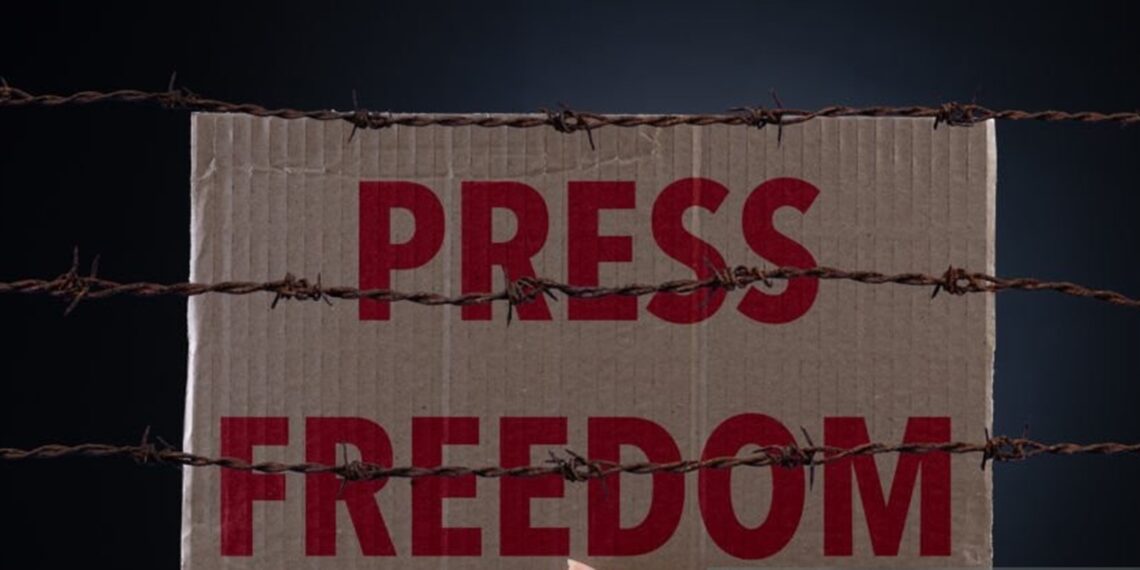A joint statement issued by 88 expatriate journalists, writers, researchers, and rights activists has strongly condemned what they described as a systematic and escalating persecution of journalists in Bangladesh under the current interim government.
The group, comprising Bangladeshi professionals based abroad, expressed deep concern over the deteriorating state of press freedom and freedom of expression since the change in government on August 5 last year.
In the statement, they accused the administration of Nobel Peace Laureate Muhammad Yunus of overseeing a campaign of repression targeting journalists and media outlets.
Citing data collected over the past 11 months, the signatories alleged that at least 412 journalists have been implicated in various cases, including those involving serious criminal charges.
Thirty-nine journalists have been arrested, over 300 placed under travel bans, and the bank accounts of more than 100 journalists have reportedly been frozen.
Additionally, they claimed that 1,000 journalists across the country have lost their jobs, while 168 have had their press accreditation revoked.
The statement further highlighted the cancellation or suspension of press club memberships for 101 journalists, including those affiliated with the National Press Club, and noted alleged state-backed takeovers of media institutions.
During the July-August movement, the group claims, 10 journalists were killed and many others injured — without any government support extended to their families.
The group also condemned a disturbing incident where a mob reportedly gathered outside a newspaper office to slaughter cows — an act the signatories called unprecedented in the global context.
“These actions reflect a clear effort to silence critical voices and suppress independent journalism,” said the statement, released by Canada-based journalist and Notundesh Editor-in-Chief Shaugat Ali Sagor. “The resulting psychological, social, and economic distress has pushed many journalists and their families into subhuman conditions.”
The group criticised the interim government’s failure to address what they described as widespread and systematic abuses.
While members of the current advisory council have previously advocated for press freedom, the statement expressed disappointment at their silence amid growing repression.
ALSO READ: South Korean delegation explores Assam’s rich tea heritage
“This level of persecution and censorship is unprecedented in the country’s democratic history,” the signatories noted.
“We are deeply saddened and outraged that such actions are being carried out under the watch of a Nobel laureate.”
Calling the ongoing crackdown a threat to Bangladesh’s global reputation, the group demanded an immediate end to all forms of harassment against media professionals and a restoration of press freedom in line with democratic norms.
All data cited in the statement, according to Sagor, is documented and available upon request.















